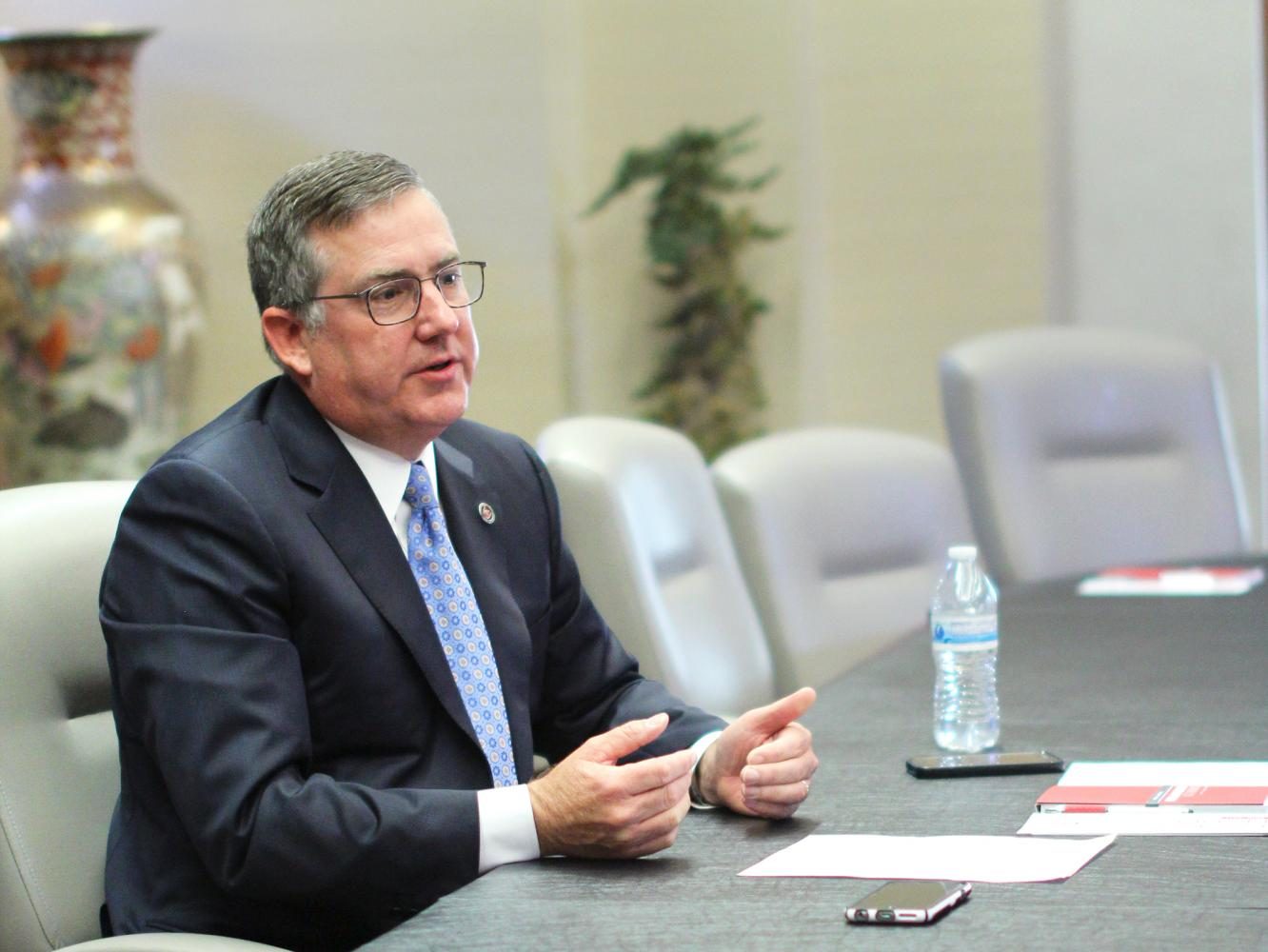WSU leaders return from Samoa visit
A spokesman said the trip was paid for through donor funds and not tax or tuition dollars
RACHEL SUN | Daily Evergreen File
Schulz notified WSU students and staff via email Monday night that the Performing Arts department will end after the current season.
September 7, 2017
A small group of Pullman community leaders, including WSU President Kirk Schulz, traveled to American Samoa last week in response to criticism that the administration was out of touch with Samoan students’ interests.
The university administration faced accusations of racial bias after some Samoan students were disciplined following an off-campus fight last summer that left a WSU student with a broken jaw. Many were involved in the incident but, accusers claimed, the Samoan students fell victim to racial profiling.
Phil Weiler, WSU vice president of marketing and communication, said controversy around the fight played a role in organizing the trip, but it was more for seeing how the university could open up more opportunities for students from the Samoan Islands.
While there, the group — made up of Schulz, Vice President for Student Affairs Mary Jo Gonzales, Pullman Police Chief Gary Jenkins and former WSU quarterback Jack Thompson — met with the Governor and Lieutenant Governor of American Samoa and the Prime Minister of the independent nation of Samoa. They also toured a hospital and villages in the territory.
“The bulk of the time they spent was finding out how WSU can partner with both communities,” Weiler said, referencing both American Samoa and the independent nation of Samoa.
American Samoa does not have a four-year university, he said, only a community college without a hospitality program. Education in hospitality is especially important for places like the Samoan Islands, where much of their economy relies on tourism.
Schulz considered how WSU might work with existing educational institutions to help Samoan students earn bachelor’s degrees that fit the needs of the islands’ economies, Weiler said.
Along with hospitality, education in agriculture and medicine were points of focus for the president. Weiler said the islands stood to benefit from agricultural improvements, bringing down the cost of food, much of which is shipped in.
Beyond exploring educational possibilities, he said, the trip was important in maintaining long-term relationships with alumni and current students’ communities.
Weiler said tuition dollars and tax revenue did not fund the delegation’s travels. Discretionary accounts supported by private donations pay for such affairs.
Pullman Police Chief Gary Jenkins said WSU invited him on the trip and he wanted go along because Samoan students were a part of the community he is tasked with policing.
“It was a good opportunity for me to learn about Samoan culture,” Jenkins said, “and also to show we are really interested in having a good relationship with the Samoan community.”
After the visit, Jenkins said, he felt more able to relate with students from the islands. He said he learned about the importance of family and community in Samoan culture, and that being there was more impactful than any experience he could have gotten without leaving Pullman.
Stephen Bischoff, Associate Director of Multicultural Student Services and retention counselor for the Asian American & Pacific Islander Student Center, praised Schulz for wanting to travel to the Samoan islands.
“I do think it was a step in the right direction,” Bischoff said, “but it is multi-faceted in that the whole campus needs to become more aware of different populations.”
He said the administration was fulfilling its responsibility of reaching out and learning about different parts of the student body.
Many from the Pacific Islands experience intense culture shock when they move to Pullman, Bischoff said, and Schulz going to their home would put their personal challenges in a clearer lens.
“It can be a very isolating experience,” he said. “[The university needs to] be mindful about how these things can affect transition to the university environment.
Correction: Vice President of Student Affairs Mary Jo Gonzales was misidentified as Mary Jo Gonzalez.










